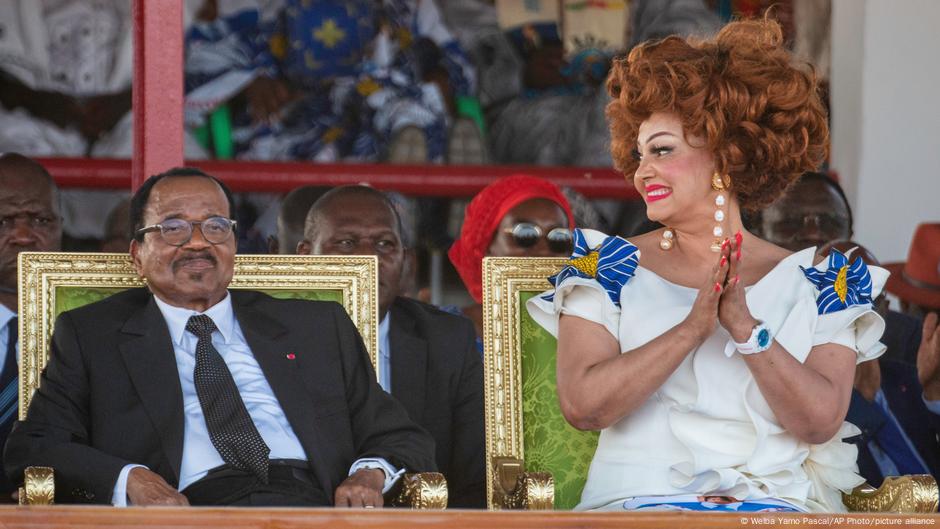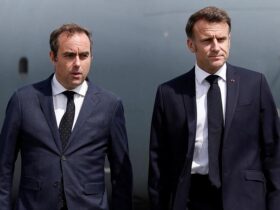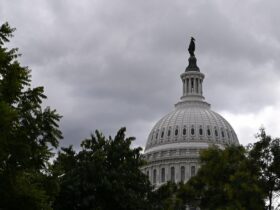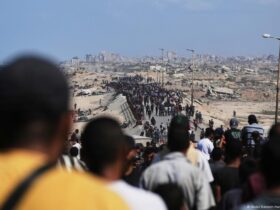At 92, President Paul Biya, in power for 43 years, is pushing for an eighth term, while a fragmented opposition struggles to fend off a challenge that could break his long, shaky hold on Cameroon.
Earlier this week, Biya made a rare public appearance at his first major rally in the remote northern city of Maroua. There, he promised to strengthen regional security, tackle youth unemployment and upgrade infrastructure.
For Biya, winning another term is not just about staying in office but proving to domestic and international audiences that his regime still has legitimacy.
His most prominent rival, Maurice Kamto, was disqualified from the race after the election body, ELECAM, announced that his party had broken nomination rules. Critics described the decision as politically motivated and another blow to hopes of free, fair and transparent elections.
“Public trust is still very low,” said Violeta Fokam, a Cameroonian governance and elections analyst.
“Citizens still consider this process more symbolic rather than real competitive events, where maybe we have a replacement,” he told DW.
Is Cameroon ready for change?
He said the sudden withdrawal of opposition figures Akere Muna and Ateki Seta, both of whom recently left the race to support longtime politician Bello Bouba Magari, had created “a lot of mixed feelings” about whether real change is possible.
Muna announced his exit on September 28, throwing his support behind Magari, with Seta also leaning in to support the 78-year-old who once served as prime minister.
“We are just hoping that things will get better, because the situation in the country is becoming more difficult by the day,” a Cameroonian in the capital Yaoundé told DW on condition of anonymity.
“We are hoping that whoever wins the elections should look at the conditions and problems that citizens are facing. That’s why we should vote,” a businesswoman also told DW on condition of anonymity.
“We’ve created a lot of awareness for people to register to vote,” Fokam said. He said, pointing to a “significant increase in the number of individuals registering.”
Security concerns for voters in Anglophone areas
But that enthusiasm collides with practical fear. For years, separatist lockdowns in Cameroon’s anglophone Northwest and Southwest regions have kept children out of school. Now, a similar strategy poses a threat on Election Day.
“Given the intensity of it, I start to question myself whether we’ll be able to go out to vote on Election Day,” Folkem said.
“How will you reach your polling station to vote? With the lockdown, no cars running, how will you reach your polling station to vote?” he asked.
The weakness of the opposition is another recurring theme. When asked if the field was strong enough to oust Biya from office, Fokam was blunt. “I wouldn’t say, I don’t think they’re strong enough.”
Pointing to the transactional politics behind the recent deals, he noted reports that “Akere Muna and Ateki [are] They are giving their vote to Magari on the condition that if he wins the presidency, he will be given a ministerial post or will be made the Prime Minister.
Such bargaining, he said, “reinforces the idea of power brokers… just looking to satisfy their own self-interests rather than representing the interests of the people.”
Women and youth voters can decide the election outcome
Despite the grim scenario, new energy is visible among young and women voters. Candidates like Hermine Patricia Ndam Njoya epitomize that impulse – a woman trying to break into Cameroon’s male-dominated power structure and speak to young, urban voters. However, he faces formidable obstacles, from limited campaign funds to extensive national media coverage.
Cameroonian tech entrepreneur Rebecca Enonchong said the public mood ahead of the vote seemed different from anything she had seen, describing a broad, determined effort for change in society.
“I’ve never seen the kind of energy we’re seeing now,” Enonchong told DW. He said it is very clear.
“You can really feel a very different energy. Cameroonians are fed up and they’ve had enough, and they want change and they want it now,” he said.
“It’s at every level of society, from street children to some very big businessmen and officials. Of course, they’re not going to say it openly, but everyone is fed up and not ready for another seven years of Paul Biya.”
Fokam said that Ndam Njoya does not have the support of women, despite being the only female candidate, with women constituting approximately 51% of Cameroon’s population.
“Maybe the strategies she’s using aren’t effective enough, or we don’t yet know that we need to stand behind her, or maybe her manifesto isn’t clear enough,” Folkem said.
Uneven playing field between candidates
Analysts say Ndam Njoya’s campaign shows a deep appetite for inclusive politics, but also how structural inequalities persist. Without equal access to resources or appropriate air time, opposition candidates are rarely able to go beyond symbolic campaigns.
For the opposition, even one candidate finishing second would be considered an achievement. This may prove that there is an appetite for change and provide a basis for building, but fragmentation, coupled with obstacles set by institutions loyal to Biya, makes that outcome uncertain.
For Focum, if voter turnout falters due to insecurity or skepticism, it will reinforce the perception that the elections are “symbolic” rather than a path to renewal. But if voters defy the odds, the election could turn out to be an unexpected turn of events.
Edited by: C Mavakideau






Leave a Reply